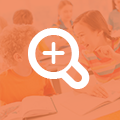Individualized Education Plans
What’s an Individualized Education Plan (IEP)?
Individualized Education Plans or programmes – better known by the acronym IEPs – have revolutionized how we approach education for children with special needs. These personalized plans are designed to cater to the unique learning requirements of each child. IEPs help ensure that children receive the support and resources necessary to help them succeed in their academic journey.
Understanding IEPs
An IEP is a written document that outlines educational goals and tailored strategies for students with special needs. It is a collaborative effort between educators, parents, and sometimes even students. The IEP is a roadmap that guides the educational process and addresses various needs, including academic, behavioural, social-emotional, and others.
The hallmark of IEPs is their individualized or customized nature. Each plan is crafted based on the child’s strengths, weaknesses, and needs, ensuring the support is tailored to their unique circumstances. One IEP should never be used for other students as it has been designed to address a child’s specific needs.
The Significance of Individualized Education Plans
IEPs offer compelling benefits that profoundly impact children with special needs and their families.
- Personalized Learning: IEPs recognize that every child is unique. By tailoring educational strategies to an individual’s strengths and challenges, IEPs create a conducive learning environment where progress is optimized.
- Inclusive Education: IEPs promote inclusive practices by ensuring that children with special needs are integrated into mainstream classrooms whenever possible. This fosters social interaction, empathy, and a sense of belonging.
- Specialized Services: Children with special needs may require specialized services, such as speech therapy, occupational therapy, physical therapy, or counselling. These services are outlined in the IEP and provided based on the child’s needs.
- Collaborative Approach: IEPs facilitate collaboration among educators, parents, specialists, and other stakeholders. This teamwork enhances support quality and promotes a holistic approach to education.
Components of an IEP
The document consists of various components. This may be tailored to the needs of each child. But in broad strokes, Individualized Education Plans covers the student’s profile, strengths and weaknesses, performance in various areas, and future goals. Each of the components has been explained below.
- Student Profile and Evaluation: This section comprehensively overviews the student’s strengths, challenges, and unique characteristics. It includes evaluations, assessments, and input from teachers, parents, and specialists.
- Goals and Objectives: IEPs set specific, achievable, and measurable goals for the student’s progress. These goals serve as benchmarks to track the student’s growth over time.
- Specialized Instruction and Services: The plan outlines the specialized instruction, support services, and accommodations required to help students reach their goals. This includes individualized teaching methods, assistive technologies, speech therapy, and occupational therapy.
Parental Involvement in Individualized Education Plans
Parents play a key role in developing and implementing the IEP. They are equal IEP team members, including educators, special education professionals, and sometimes students. Their input and perspective on their child’s strengths, needs, and goals are integral to creating an effective plan.
IEPs offer valuable support to parents of children with special needs. The IEP can help them in various spheres:
Clear Roadmap: IEPs provide a clear roadmap for a child’s education, alleviating uncertainty and anxiety about their future.
Informed Decision-Making: Parents are actively involved in the IEP process, allowing them to make informed decisions about their child’s education and well-being.
Conclusion
Individual Education Plans are a cornerstone of inclusive and personalized education for children with special needs. These plans ensure that each child’s unique learning requirements are met, empowering them to achieve their full potential. IEPs also offer parents the support, guidance, and tools to participate in their child’s educational journey actively. As we continue to recognize the importance of tailored education, IEPs remain a beacon of hope and progress for children with special needs and their families.





Leave a Reply